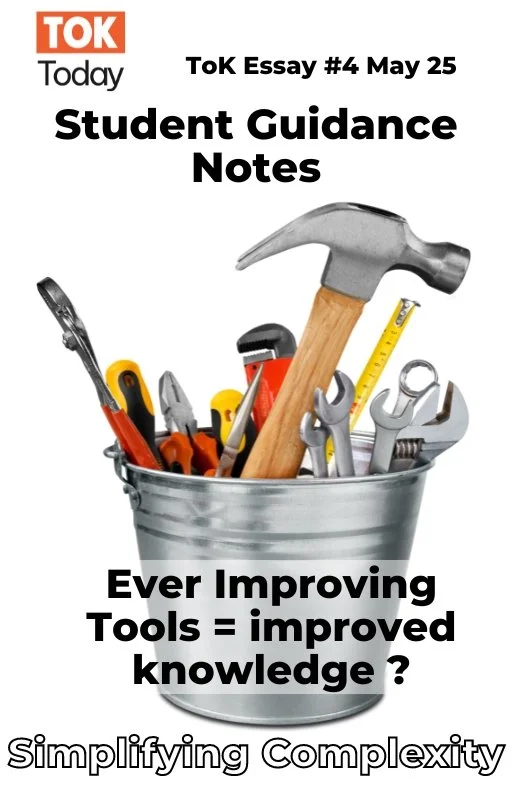The Most Improving Tool is, probably, Us (ToK Essay #4 M25)
Tools used to produce knowledge have evolved in many exceptional, but conventional ways for millenia. E.g. microscopes, computers, and algorithms have all given us better accuracy, sophistication, and control. However, these conventional improvements are dwarfed by the magnitude of the improvements enabled by The Singularity, where humans and tools become inseparable, fundamentally altering what we even mean by “improvement.”
The Singularity, as outlined by Ray Kurzweil in The Singularity is Near: When Humans Transcend Biology, suggests a future in which artificial intelligence (AI) and humans merge. Kurzweil predicts that by 2045, AI will surpass human intelligence, enabling us to integrate our biological systems with powerful machine capabilities (Kurzweil, 2005). This changes the way we think about improving tools. Kurzweil states, “Once a computer achieves a human level of intelligence, it will necessarily soar past it. In a short time, it will be capable of far more than the entire human race combined.” This leap in AI will transform how knowledge is produced—humans won’t just use tools; they will become integrated with them, enhancing their capacity to improve knowledge at unprecedented rates.
Nick Bostrom, in his book Superintelligence: Paths, Dangers, Strategies, expands on this, highlighting the idea that AI could rapidly improve itself, leading to an intelligence explosion (Bostrom, 2014). This self-improvement cycle would enable AI to solve complex problems faster than humans can, and humans, as part of this integrated system, would have access to an ever-accelerating feedback loop of knowledge. Bostrom writes, “Once machines surpass human capabilities in all areas, further advancement would be swift and profound.”
The shift brought by the Singularity implies that humans will no longer be mere operators of tools but will become part of the tool itself, improving it through direct cognitive enhancements. We will no longer design tools to realise outcomes, but we will be both part of the tool, and part of the outcome. This is not just a quantitative improvement but a qualitative shift, where the boundaries between human cognition and artificial intelligence dissolve, leading to greater innovation. This integration offers a profound new form of “ever-improving” tools—where the limits of knowledge production are redefined by human-machine symbiosis.
In terms of Theory of Knowledge (ToK) Essay #4 May 25 whilst tools have always improved knowledge through accuracy and efficiency, the Singularity represents a paradigm shift. Humans, by becoming integral to these tools, will push the boundaries of knowledge production even further. The tool of the future isn’t just better—it is us.
References
Bostrom, N. (2014). Superintelligence: Paths, dangers, strategies. OUP Oxford.
Kurzweil, R. (2005). The singularity is near: When humans transcend biology. Penguin.
Pick up the ToKToday Student Guidance Notes on ToK Essay #4 May 25 for guidance on ways to answer this question.

